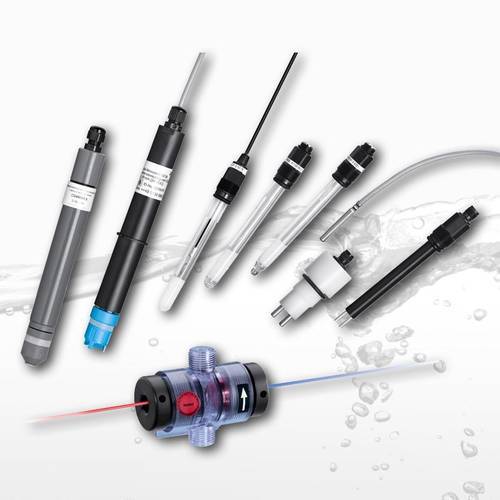
The subtle difference
Lutz-Jesco sensors are characterised by their high quality, a robust build and good price-performance ratio. Intensive research and many years of practical experience mean we have the skills to successfully deal with the measurement tasks you set us. We provide all measuring procedures for chlorine measurement, enabling you to select the procedure which matches your needs.
An overview of the three measuring principles
- Potentiometry
Potentiometry measures the potential of the electrode in a measurement solution.
- Amperometry
This enables the determination of the concentration of various substances by current measurement in watery solutions.
- Conductometry
This measurement principle measures the electrolytic conductivity.

Our sensor technology at a glance
- Sensors for disinfectants
- pH measurement sensors
- Redox measurement sensors
- Conductivity measuring cells
- Dissolved oxygen measuring cells
- Turbidity measuring cells
- Sensors for measuring the temperature
- Fittings for mounting sensors
Conductivity measuring cell
The conductivity measuring cell determines the conductivity in liquids in conjunction with transmitters in analytical measurement technology. Electrolytic conductivity is defined as the ability of a substance to conduct electrical current. The measurement is based on the dependence of conductivity on the concentration of the measured medium.
pH electrode/redox electrode
pH and redox electrodes are essential tools for the precise measurement of acidity, alkalinity and redox potentials in aqueous and non-aqueous solutions. pH electrodes typically consist of a measuring electrode and a reference electrode, which together generate an electrical potential proportional to the pH value. Redox electrodes work in a similar way by measuring the ratio of reducing and oxidising components of a solution. We offer both types of electrodes as combined combination electrodes, which ensure easy handling and reliable measurements.
Temperature sensor
The Pt 100 temperature sensor enables automatic temperature measurement of water values. The resistance thermometer is characterised by high accuracy and reliability, which makes it ideal for precise measurements in water treatment in particular.
Amperometric measuring cell
Based on the principle of depolarisation of a galvanic element, the amperometric measuring cell uses a platinum and a copper electrode that work in an electrolytic medium. This enables the chlorine concentration to be determined accurately and reliably. Ideal for use in water treatment systems and industrial processes, our amperometric measuring cell offers a fast response time and excellent stability to optimise your process monitoring and quality control.
info@lutz-jesco.com



















